Humans
Sign up for our newsletter
We summarize the week's scientific breakthroughs every Thursday.
-
 Health & Medicine
Health & MedicineInjured baby hearts may be coaxed to regenerate
Shots of a growth factor protein reduce cell death in infant mice with heart damage.
By Nathan Seppa -
 Health & Medicine
Health & MedicineOlder moms may have options to reduce newborns’ risks
Although babies born to older mothers face a higher danger of congenital heart defects, exercising moms may offset this added risk, a study in mice shows.
By Nathan Seppa -
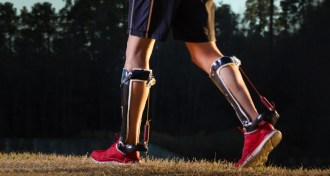 Tech
TechExoskeleton boot makes for more efficient walking
Newly developed exoskeleton boots that are unpowered are showing scientists that it is still possible to make walking even more efficient for humans.
-
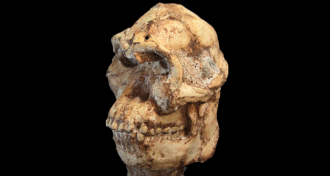 Anthropology
Anthropology‘Little Foot’ pushes back age of earliest South African hominids
Study suggests Lucy’s species had a South African foil nearly 3.7 million years ago.
By Bruce Bower -
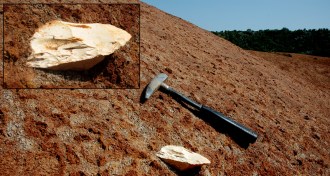 Anthropology
AnthropologyAncient hominids moved into Greece about 206,000 years ago
New analysis puts people at a contested Greek site about 206,000 years ago.
By Bruce Bower -
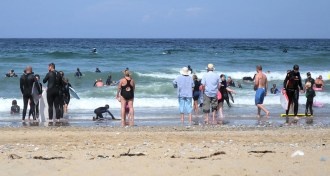 Microbes
MicrobesSome superbugs lurk in Britain’s surf
In Great Britain’s coastal waters, surfers and swimmers are exposed to low levels of drug-resistant E. coli, a new study finds.
-
 Humans
HumansEgg-meet-sperm moments are equal opportunities for girls and boys
Despite previous claims, equal numbers of male and female embryos are conceived, new data suggest.
-
 Health & Medicine
Health & MedicinePerformance gains from Tommy John surgery still up for debate
Major league baseball pitchers who undergo two Tommy John surgeries have shorter careers than peers who don’t have the surgery, a new study finds.
By Nathan Seppa -
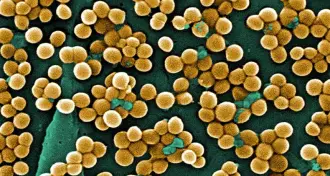 Science & Society
Science & SocietyWhite House unveils strategy against antibiotic resistance
The Obama Administration has launched a long-term plan to curb antibiotic resistance, unveiling incentives and requirements designed to boost surveillance and diagnosis of resistant microbes.
By Nathan Seppa -
 Psychology
PsychologyLong-term study complicates understanding of child abuse
Sexual abuse and neglect get reported more if parents were maltreated as kids, which may lead authorities to overestimate some children’s risk of abuse.
By Bruce Bower -
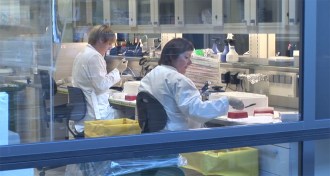 Genetics
GeneticsIceland lays bare its genomes
A detailed genetic portrait of the Icelandic population is helping scientists to identify the genetic underpinnings of disease.
-
 Psychology
PsychologyRethinking light’s speed, helping young adults with autism and more reader feedback
Readers discuss the best ways to replicate findings in scientific studies, help teenagers with autism transition to adulthood, and more.